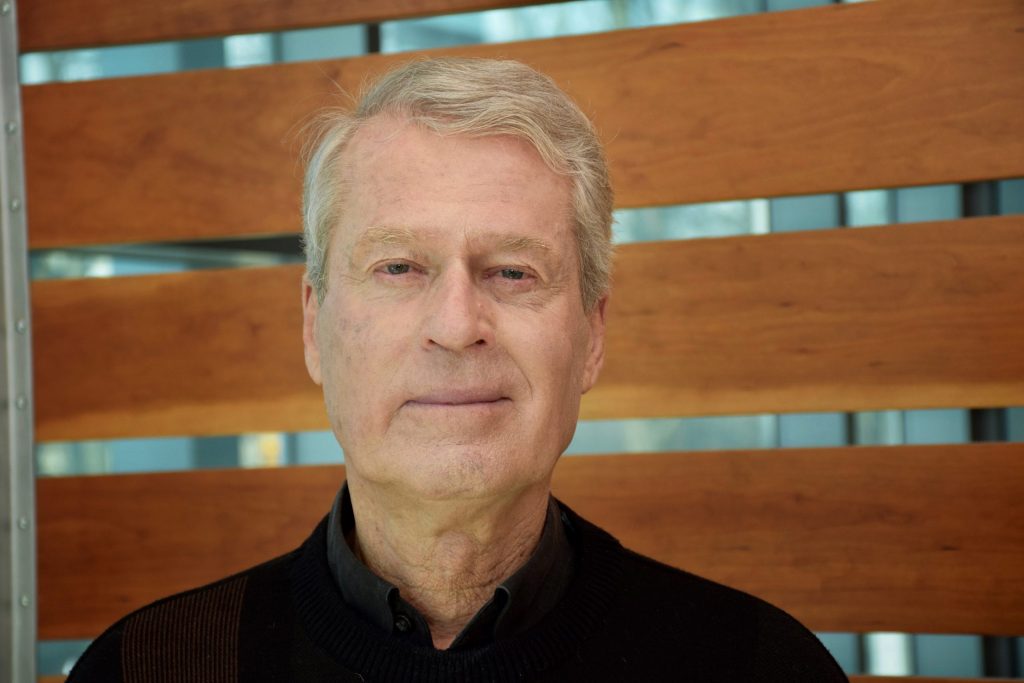The Stockholm International Water Institute (SIWI) has awarded Dr. John Cherry, a Canadian groundwater expert credited with creating the field of contaminant hydrogeology, the 2020 Stockholm Water Prize.

The prize represents the global water sector’s most prestigious annual commendation, recognizing a person or organization who has made outstanding contributions to water protection, conservation, and education. SIWI has administered the prize since 1991 with the support of the Water Environment Federation (WEF; Alexandria, Virginia), the Royal Swedish Academy of Sciences, Xylem Inc. (Rye Brook, New York), Bacardi (Hamilton, Bermuda), and other partners. As the 2020 winner, Cherry will receive 1,000,000 kr (approximately $100,000 USD) and meet Swedish King Carl XVI Gustaf, who will present the prize at a ceremony normally held during World Water Week in August.
“With the Stockholm Water Prize, John Cherry is recognized for his contributions to science, education, practice, and for translating his well-earned stature into a passionate and highly effective advocacy for groundwater science to inform current and future policies, laws, and collective deliberations that governments must establish to protect water, our most essential and yet most imperiled resource,” described the SIWI Nominating Committee in Cherry’s citation.
Five Decades of Groundwater Leadership
Studying how contaminants from both above and below the surface affect groundwater quality, as well as ways to remove those contaminants, has been the focus of Cherry’s work since the early 1970s. During his career, Cherry has played an instrumental role in the development of new measurement tools and methodological approaches for groundwater study. Many of the study methods Cherry pioneered are now recognized standards for groundwater monitoring, control, and remediation in many countries, including Canada, the U.S., and Brazil, according to the SIWI citation.
Cherry partnered with R. Allan Freeze to author the textbook Groundwater in 1979, which remains a seminal work for academics and practitioners studying groundwater quality. The full, original text is available for free online via Hydrogeologists Without Borders. As a researcher, Cherry has published more than 200 peer-reviewed studies and has been cited more than 35,000 times, SIWI acknowledged.
An advocate for cross-border collaboration on groundwater issues, Cherry established the Borden Groundwater Field Research Facility at a landfill site in Ontario in the late 1970s. Work at the facility, now an international hub for groundwater researchers to study subterranean contaminant movement, led to new insights on contaminant fate that have informed waste-disposal-site selection in regulatory codes around the world.
Cherry spent much of his career as a professor and field researcher at the University of Waterloo (Ontario), where he retired in 2006 after a tenure of more than three decades. Despite his retirement, he continues his service to the water profession as a Distinguished Professor Emeritus at the University of Waterloo, an adjunct professor at the University of Guelph (Ontario), and in director positions for the G360 Institute for Groundwater Research and the University Consortium for Field-Focused Groundwater Research. He currently spearheads the Groundwater Project, an effort to make groundwater research from the world’s leading hydrogeologists freely available for public use, anticipated to launch later this year.
The Resources and Risks Beneath Our Feet
Accepting the 2020 Stockholm Water Prize, Cherry described his hopes that the honor will attract more attention to the crucial and often-overlooked field of groundwater research.
“Though the global water crisis is starting to get more attention, groundwater is often forgotten, despite making up 99% of the planet’s liquid freshwater,” Cherry said in a statement. “Many people still perceive it as pristine when in fact it is threatened by human activity.”
Cherry described that groundwater is often overused or heavily contaminated by such activities as agriculture, industry, and hydraulic fracturing. However, in other areas, cleaner groundwater sources may represent an untapped supply of safe drinking water. The technology exists to make effective use of groundwater, Cherry said, but not a single country currently takes full advantage of it.
“We urgently need to raise awareness of the importance of groundwater. It’s the essential water for our ecological world and sustains rivers, lakes, peatlands, wetlands, everything,” Cherry said. “Already today, almost half the global population is drinking groundwater. In coming years, when our planet will have an additional two or three billion inhabitants, most of them will rely on groundwater.”
Cherry is the second Stockholm Water Prize winner from Canada, following David W. Schindler, the prize’s inaugural recipient, in 1991.
Learn more about Dr. Cherry or the Stockholm Water Prize at the SIWI website.
— Justin Jacques, WEF Highlights








May 21, 2020
Achievements